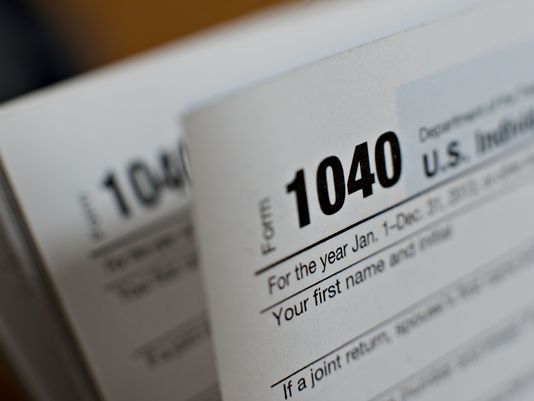Should you bother itemizing your tax returns?
Getting your paperwork together before Tax Day? Well, before you break out the calculator and dig through shoe boxes of receipts, keep in mind these are futile exercises for many Americans.
"Most people who file, roughly two-third take the standard deduction instead of itemizing," said Chris Woehrle, assistant professor of taxation at The American College of Financial Services.
The standard deduction is a fixed amount that the Internal Revenue Service will knock off your taxes with no questions asked.
For tax year 2013, the standard deduction is $6,100 if you're single or filing separately from your spouse. The standard deduction for those married and filing jointly is $12,200.
If you have deductions (supported with proper documentation, of course) that top these amounts, then it makes sense to itemize your return.
But if not, you're simply wasting your time crunching numbers that won't get you a bigger refund.
"The general public, I believe, has the correct assumption that the tax code is complicated," said Woehrle, citing estimates that the U.S. tax code is some 70,000 pages long. "Most people assume there's something in there for me that's going to reduce my taxes. But it's not always true."
Streamline the Tax Process
If you don't own property or a business, it's unlikely that you'll qualify for some of the juiciest deductions.
Similarly, a relatively small percentage of Americans have investments outside of a qualified retirement plan like a 401(k) or an IRA that require them to file complex tax paperwork.
"Over half the country lives paycheck to paycheck, according to consumer surveys," Woehrle said. "They are most likely not owners of capital."
If you don't own property or investments then you can take guesswork out of your returns and with the standard 1040 tax form[1]. There are a total of 76 items on the one-page form, but many lines, such as foreign tax credits or combat pay, won't apply to typical taxpayers and can be skipped.
"The vast majority of those people who take the standard deduction also go to some paid type of tax return preparer," Woehrle said, but paying $50 or more for (relatively) straightforward tax preparation may not be the best use of your hard-earned cash.
Do-it-yourself tax filers sometimes are surprised at how easy it is to claim a standard deduction, particularly when they can file online for free with software that helps them along.
When It Makes Sense to Itemize or Get Tax Help
Of course, even if they have straightforward taxes to file, some Americans don't have the time or inclination to do their own paperwork.
"If you look at the instructions to the form 1040, it's generally supposed to take (the average taxpayer) 13 hours to gather all the receipts and get all the needed forms. Not everyone's going to have 13 hours," Woehrle said. "Most people surrender to Mr. and Mrs. Government, and say 'I just want to be put out of misery.' "
Beyond the time factor, there's also the peace of mind in knowing someone with more experience has done the math. Also, firms like H&R Block and Jackson Hewitt offer guarantees where they will pay some of the penalties if your return is filed inaccurately.
You'll still be on the hook for any underpayment, of course. And remember that a sloppy tax preparer won't save you from IRS scrutiny.
"There's not an exemption for bad tax return preparing," Woehrle said.
Still, many people would rather trust in a more knowledgeable third party than risk it alone.
There also are specific occasions when itemizing makes sense, and complicating your returns is well worth it. Woehrle said some of those cases include:
• Charitable giving. Making big donations each year can mean big tax write-offs if you itemize and have proper documents.
• Local taxes. Taxpayers who have high burdens with their state or local taxes, notably in places like New York or California, which have high rates, should consider itemizing. These taxes are deductible from your federal returns.
• Property loss. Anyone who has suffered a significant "casualty loss" — that is theft or property damage not covered by insurance — might want to itemize. The IRS gives you a tax break for these kinds of hardships.
• Homeowners. Those with mortgages, particularly loans taken out recently, should probably itemize. If you have a home loan, typically the first few years are almost all interest payments. That means you can unlock a big deduction.
• Health issues. While it's sometimes difficult for the typical taxpayer to unlock medical tax breaks, anyone with severe health issues who suffers big out-of-pocket costs is eligible for big breaks should they itemize their tax return.
If you're unsure whether you qualify for these deductions or whether the standard deduction is greater than your tax breaks, Woehrle said, there's no shame in asking a professional for guidance.
After all, if you end up itemizing, the fees you pay for tax preparation itself is tax deductible.
Jeff Reeves is the editor of InvestorPlace.com and the author of The Frugal Investor's Guide to Finding Great Stocks.
References
- ^ 1040 tax form (www.irs.gov)










